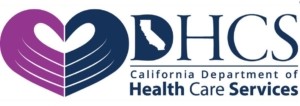Get Your Life Back
Depression is the second-most common mental health disorder. It affects 7 percent of adults, which is roughly around 17.3 million people every year. Dana Point Residential Mental Health is one of the best depression treatment centers California has available. Learn why you should choose our treatment center to help you or your loved one reclaim a better quality of life.
How Can Depression Treatment Help?
Most people don’t realize that clinical depression isn’t just occasional bouts of sadness. It’s a mental health and mood disorder that can interfere with one’s ability to participate in daily activities. It can adversely affect relationships, career, school, and health. Depression treatment at our residential treatment center in California allows individuals to work through their mental health issues in a safe and supportive environment. An inpatient program takes you away from any daily stressors and allows you to re-examine your life and get the support you need to treat major depressive disorder. Dana Point Residential Mental Health offers a tailored, multi-dimensional approach for depression to guarantee long-lasting clinical results.
Depression symptoms and signs to look for include the following:
- Feelings of sadness and hopelessness most of the time
- Changes in eating and sleeping habits
- Fatigue, slowed thinking, and feelings of shame and guilt
- Loss of interest in hobbies, activities, or work
- Difficulty concentrating or making decisions
- Suicidal thoughts and ideation
Frequently Asked Questions
It’s a serious mental health disorder that causes feelings of sadness. While it’s normal for an individual to feel sad once in a while, depression causes one to lose interest in activities they usually enjoy. They have trouble participating in everyday life and find it difficult to maintain relationships with others. This can be caused by stressful life events, an imbalance in brain chemistry, or even medication. It’s important that depression is treated in order to prevent the individual from resorting to unhealthy coping mechanisms. Contact our residential mental health treatment center in California today.
Signs and symptoms of depression will include feelings of sadness, the loss of interest in hobbies, changes in appetite, loss of energy, trouble sleeping or sleeping too much, feeling worthless or guilty, difficulty with concentration, and thoughts of death or suicide. If you or your loved one is experiencing any of these depression symptoms, it’s best to seek proper treatment. Major depression is a serious medical condition. It typically lasts over two weeks and affects one in 15 adults in the United States.
The Dana Point Residential Mental Health facility is a depression treatment center in California. We offer an intensive program for inpatient depression treatment. It involves an upscale residential setting where individuals can work through their core issues with the help of the best clinicians in the country. Our depression treatment center provides clients with a daily schedule full of therapeutic activities that aid in long-lasting results. The treatment program involves participating in group therapy as well as holistic treatment in order to provide the depressed individual with the support they need to move forward. Each treatment plan is personalized to the individual’s unique needs. And that’s what makes Dana Point stand out from other mental health treatment centers in the Southern California area.
Recovering from depression requires different treatment options in order to provide symptom relief. Because this mental health condition affects a variety of different functions in the body, treatment will involve medication as well as therapy. The clinical team will prescribe individuals antidepressants as a core treatment element for major depressive disorder. A doctor will prescribe the best possible medication that suits the individual. Antidepressants typically take around four to six weeks to take effect. Psychotherapy is also part of the treatment plan, which allows the client to work through any underlying issues that contribute to depression. Our depression residential treatment center uses a holistic approach and schedules complementary activities to promote mindfulness and reduce stress.
3d tour
Depression Treatment From a Compassionate Care Team
Reach out to our team of compassionate healthcare professionals. If you or your loved one is struggling with severe depression, it’s time to consider treatment for a better quality of life.
Some additional text
Types of Depression
Major Depressive Disorder
Most individuals in the United States who suffer from depression are typically struggling with major depressive disorder. This causes people to feel depressed more often than not and they typically lose interest or motivation in life. Some are anxious while others feel agitated or melancholic. This disorder can manifest in a number of ways.
Persistent Depressive Disorder
Persistent depressive disorder is a type of depression that lasts for over two years. It’s a chronic condition and results in a change in appetite, fatigue, low self-esteem, hopelessness, trouble making decisions, and sleeping problems.
Seasonal Affective Disorder (SAD)
Seasonal affective disorder is typically associated with depression during the winter months. This is due to the lack of exposure to sunlight. Because the days are shorter, people typically suffer from feelings of sadness. Thankfully, this type of depression can be managed with antidepressants as well as light therapy for 15 to 30 minutes a day. Light therapy is designed to mimic exposure to sunlight through a bright light.
Situational Depression
This can be attributed to the body’s stress response when it comes to life-changing events. Situational depression is often a result of the loss of a loved one, divorce, or chronic unemployment. Because this type of depression develops as a result of a specific situation, it can usually be resolved through psychotherapy. Getting ongoing support from a mental health provider can help manage moods and feelings.
Atypical Depression
Atypical depression describes a pattern of depressive symptoms. Positive events can improve one’s mood but they will still experience depression and have symptoms such as increased appetite, sleeping issues, and sensitivity. Doctors may prescribe SSRIs or antidepressants to help treat any persistent feelings of sadness.






